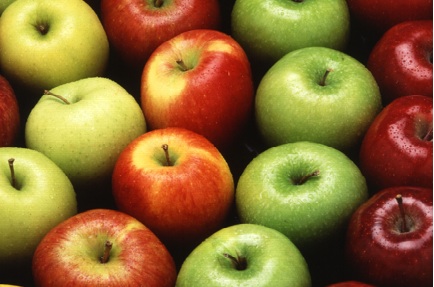
Features
Fruit
Production
Chemical traces on some organic produce
December 14, 2011 By The Canadian Press
 NEWS HIGHLIGHT
NEWS HIGHLIGHT
Chemical traces on some organic produce
The head of the Canada Organic Trade Association says
it’s difficult to get a full picture of pesticide residue on organic produce in
Canada.
December
13, 2011, Toronto, Ont – The head of the Canada Organic Trade Association says
it’s difficult to get a full picture of pesticide residue on organic produce in
Canada.
Matthew
Holmes was reacting to government inspection reports obtained by CBC News that
showed 23.6 per cent of the 178 organic apples tested in 2009 and 2010 had
residues.
 |
|
He says
the testing does indicate some trace amounts, but it’s actually good news
showing “really, really low” levels and corroborating what’s been seen
elsewhere, in the United States and Europe.
Holmes
says non-organic produce can have anywhere from about 10 times to 100 times
more pesticide residue as organic produce.
He says
chemical substances picked up on organic produce are typically from a
post-harvest situation, when they might be used in warehouses, packing
facilities or at the retail level.
Holmes
also says organic produce can be affected by chemicals in water, and pesticides
that drift in from neighbouring farms.
“This
isn’t about organic farmers trying to get around the rules. It’s about the fact
that these chemicals are everywhere,” Holmes said in an interview from
Sackville, N.B.
“So if
people are really concerned about pesticide residues, about these sorts of
things in their food, then what we’re telling them is we’ve got data and we’ve
got a system in place that doesn’t use them, and it forbids them.”
He also
notes that the government testing was done before new federal rules for organic
produce were fully implemented in June of this year.
Organic
farming comprises just two per cent of agriculture in Canada, Holmes said.
“So
there’s 98 per cent of agriculture that is spreading these sorts of chemicals
around much of the time. It’s in our water, it’s in our air, and it’s in our
soil,” he said.
“And
we’re going to see this for probably a couple of generations, if not more. But
organic is the solution that gives us a different model.”
Print this page